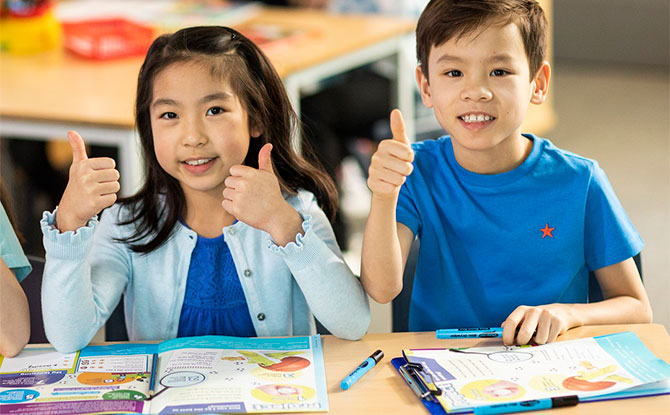
Hands up if staying at home with your brood has seen you mostly barking instructions to get everyone organised, nagging at folk to stay on task, mediating disagreements or delivering mini lectures as the proxy teacher.
Guilty as charged.
Being together at home is theoretically a great opportunity for family bonding, but perhaps, like me, you are discovering that the said bonds don’t magically materialise.
Parents everywhere are struggling to navigate our own work while managing the home, educating, organising and occupying the kids. Under stress, it isn’t uncommon to default to trying to maintain order rather than relationships. Which often finds us looking more for ways to occupy our kids than to engage with them.
DINO-TASTIC EXHIBITION: Meet a 40m Long Dino Face-to-Face
GIVEAWAY FOR ENEWSLETTER SUBSCRIBERS: LEGO NINJAGO SET
REGISTER EARLY AND SAVE UP TO $400: English Classes for N1 to Secondary
But consider this: time at home is an unprecedented gift to ordinarily time-starved families for relationship building. Will we seize or squander it?
Tips for Good and Meaningful Conversations with Kids
Here are some tips that might help you get started with some meaningful conversations with kids.
1. Be Intentional
We all know that good conversations with our kids can tell us a lot about what they believe, provide insights into their fears and struggles, and make them feel known and understood.
But here’s the catch. Such conversations rarely happen spontaneously. And they take time. So the first step to generating meaningful conversation in your family is to intentionally make room for it.
Consider having times in the day when all electronics cease for a period of time – parents too. Offer something in its place, an activity over which you can start a conversation. Depending on your kids’ ages and interests and your home set-up, it could be sitting around the table over a game or jigsaw puzzle, or a creative project of some sort that you can do together. An (indoor, for now) “picnic” or “campfire” may also be a fun idea.
Alternatively, deliberately take advantage of captive time – riding in a car, chore time, or sitting at the dinner table, for example – to talk and listen without the distraction of the TV, radio or devices.
2. Ask the Right Type of Questions
Good family conversation starters are:
- Open ended. “How” and “Why” questions seem to work best with getting kids to talk because they open the door to more than just one-word answers.
- Something adults can answer too. Conversation shouldn’t be one sided. Hopefully your kids want to hear what you have to contribute too.
- No one likes boring questions.
Be mindful that questions should be natural, not an interrogation.
If you rapidly fire questions at your child, he’ll be more likely to shut down. So limit your questions to one or two at a time. Spend time exploring your child’s responses and and showing that you’re interested in what he has to say.
On another note, for many kids, questions that deal with their performance, in any way, create anxiety and cause them to shut down. So it may be wise to avoid asking about anything academic or even practices and performances.
3. Make it Enjoyable
Sometimes getting the conversation going can take a little effort and creativity. If you get stuck, you can always turn conversation into a game like “High/Low” or “Would You Rather?”
To play “High/Low,” everyone takes turns telling the others one high point of the day and one low point of the day. Your kids’ answers can provide a lot of insight into their lives and can easily act as conversation starters.
“Would You Rather” is a fun way to interact with one another by using absurd questions like “Would you rather have a water balloon fight every day or a food fight once a week?”
There are no rules as to what the questions can or can’t be about. Let everyone take turns making up questions and have fun.
4. Make Sure You Are Listening
It goes without saying that if we want our kids to talk we have to be good listeners – fully present and interested.
But it’s also a good idea to refrain from probing for more information than your child wants to offer. Instead, be patient and wait to see if there’s more to come. Many times kids will offer more information if you demonstrate that you’re listening but not judging. Offering too much advice or trying to “fix” something can also cause kids to shut down.
5. Keep At It
Realistically, when trying to deepen relationships in your home, you may well meet with resistance. Not every kid (especially teens) will appreciate what you’re doing. Your child may complain, give short dismissive answers or refuse to engage.
One tip is to try humour in response to resistance rather than frustration. Be positive and patient and persevere and realise that ultimately what you are doing is modeling to your child, however uninterested he may be, the value of relationship.
Kids may also be unpredictable when it comes sharing. Some may not be interested in talking when you ask them about their day or want to play a conversation game. But as you walk into their room to say goodnight, they’ll suddenly want to pick up the conversation. It’s important that we stay available to them, and make time to engage based on their readiness, not ours.
All this takes effort, but view it as investment to seed the habit of what we hope will be a lifetime of meaningful conversations with our kids.


























